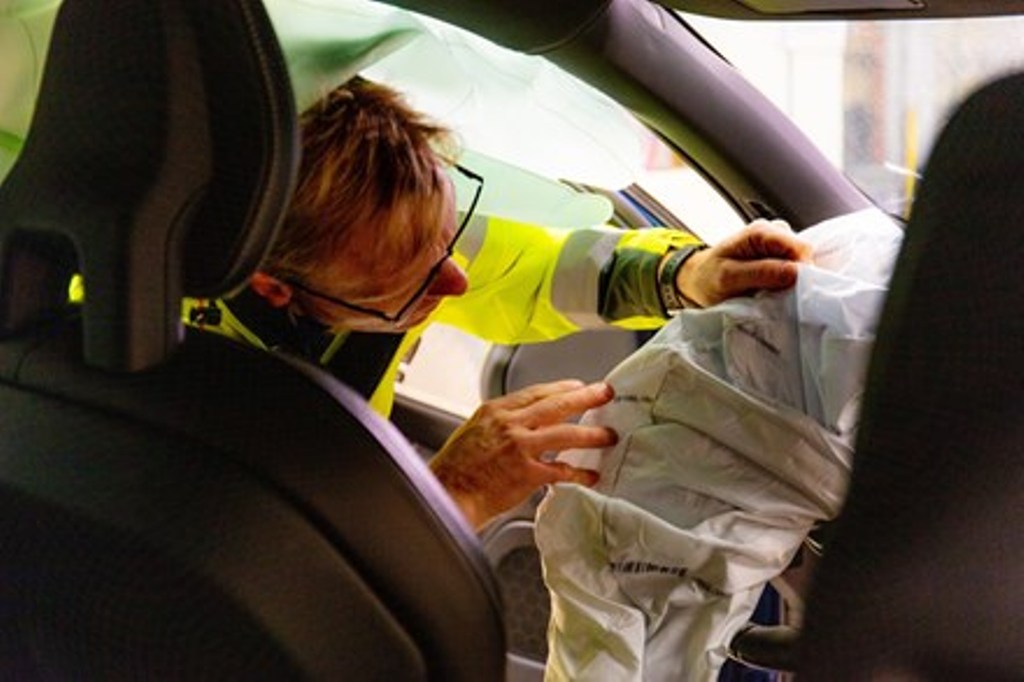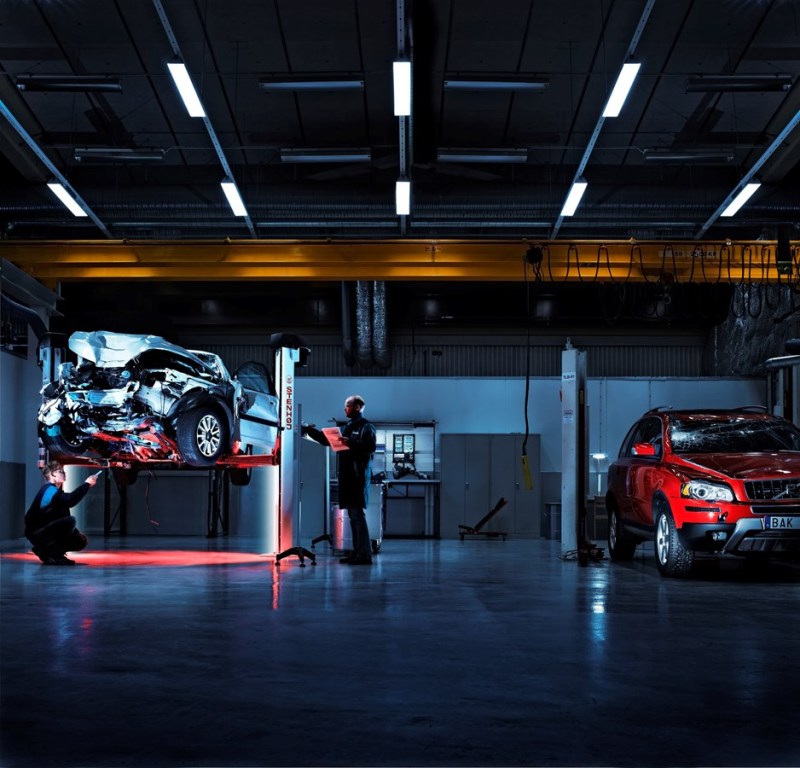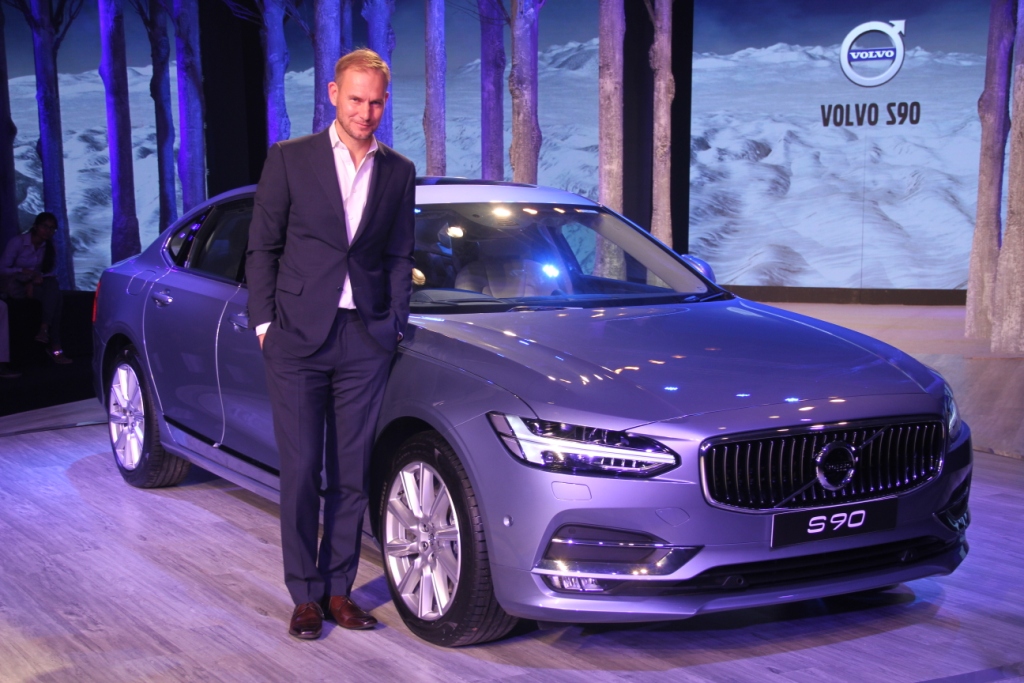
At Volvo Cars, they are known as the company’s in-house detectives. Yet they could also be called the Swedish car maker’s own CSI team, with a little twist on the acronym of TV fame.
The crash scene investigators of the Volvo Car Accident Research Team, which celebrates its 50th anniversary this year, are ready around the clock to make sure that Volvo Cars learns from real-life accidents and constantly improves its cars.
“The Accident Research Team’s hard work and research allows Volvo Cars to make sure that a tragic traffic accident can lead to something good: ever safer cars,” says Malin Ekholm, head of the Volvo Cars Safety Centre. “By closely analysing what has happened during each phase of an accident, the team provides crucial information on what can be improved on our cars.”
The team has been in operation since 1970. Whenever an accident involving a Volvo occurs around Gothenburg, Sweden, be it night or day, they quickly get to the scene when notified. As they arrive, they start an investigation and document the sequence of events as detailed as possible.
That means asking questions. How forceful was the impact? How quickly did the active safety systems intervene? How are the passengers? Other questions include: What was the weather like? What was the time? In what condition were the road markings?
The work continues back at the office: the team requests publicly accessible police reports, contacts the driver and examines the car when possible. The team also tries to understand how the driver experienced the accident, a process that involves the Volvo Cars Safety Centre’s behavioural scientists.

Finally, the team will ask the people involved in the accident to share their medical records, which allows them to take note of any injuries sustained. These are analysed by biomechanics experts, in cooperation with physicists, to understand the exact causes of the injury.
All the data and knowledge collected is coded and depersonalised. Conclusions from this research are shared with Volvo’s product development teams, who use it to develop and implement new technologies in upcoming cars. The team also identifies things that can’t be solved today – allowing Volvo Cars to remain at the forefront of safety development.
Every year, the team investigates around 30-50 accidents in person, but accidents happen all over the world and the scene can be hard to reach on time. In those cases and to the degree possible, the detectives work to map out accidents with the support from Volvo personnel and emergency services closer to the site.
On top of that, the team also uses other sources of information such as public accident databases found globally to make sure that the necessary steps are taken.
“The Accident Research Team is far from the only source of research data for our safety experts, but it plays an important role for us to really understand the details,” adds Malin Ekholm. “Accidents do still happen, but nowadays the consequences are much milder and serious injuries are much rarer than they used to be.”
Volvo Car Group in 2019
For the 2019 financial year, Volvo Car Group recorded an operating profit of 14.3 BSEK (14.2 BSEK in 2018). Revenue over the period amounted to 274.1 BSEK (252.7 BSEK). For the full year 2019, global sales reached a record 705,452 (642,253) cars, an increase of 9.8 per cent versus 2018. The results underline the comprehensive transformation of Volvo Cars’ finances and operations in recent years, positioning the company for its next growth phase.
About Volvo Car Group
Volvo Cars was founded in 1927. Today, it is one of the most well-known and respected car brands in the world with sales of 705,452 cars in 2019 in about 100 countries. Volvo Cars has been under the ownership of the Zhejiang Geely Holding since 2010.
In 2019, Volvo Cars employed on average approximately 41,500 (41,500) full-time employees. Volvo Cars head office, product development, marketing and administration functions are mainly located in Gothenburg, Sweden. Volvo Cars head office for APAC is located in Shanghai. The company’s main car production plants are located in Gothenburg (Sweden), Ghent (Belgium), South Carolina (US), Chengdu and Daqing (China), while engines are manufactured in Skövde (Sweden) and Zhangjiakou (China) and body components in Olofström (Sweden).
Under its new company purpose, Volvo Cars aims to provide customers with the Freedom to Move in a personal, sustainable and safe way. This purpose is reflected into a number of business ambitions: for example, by the middle of this decade it aims for half of its global sales to be fully electric cars and to establish five million direct consumer relationships. Volvo Cars is also committed to an ongoing reduction of its carbon footprint, with the ambition to be a climate-neutral company by 2040.


